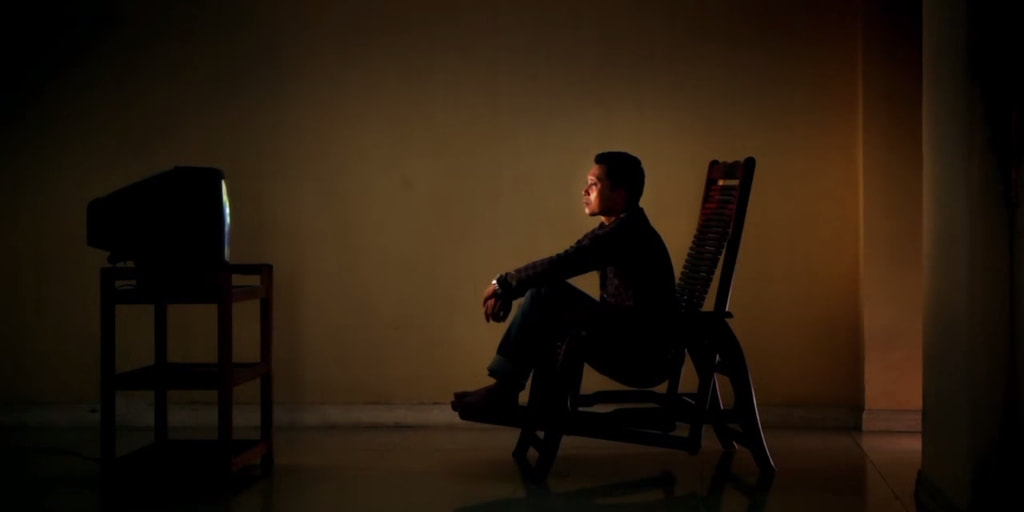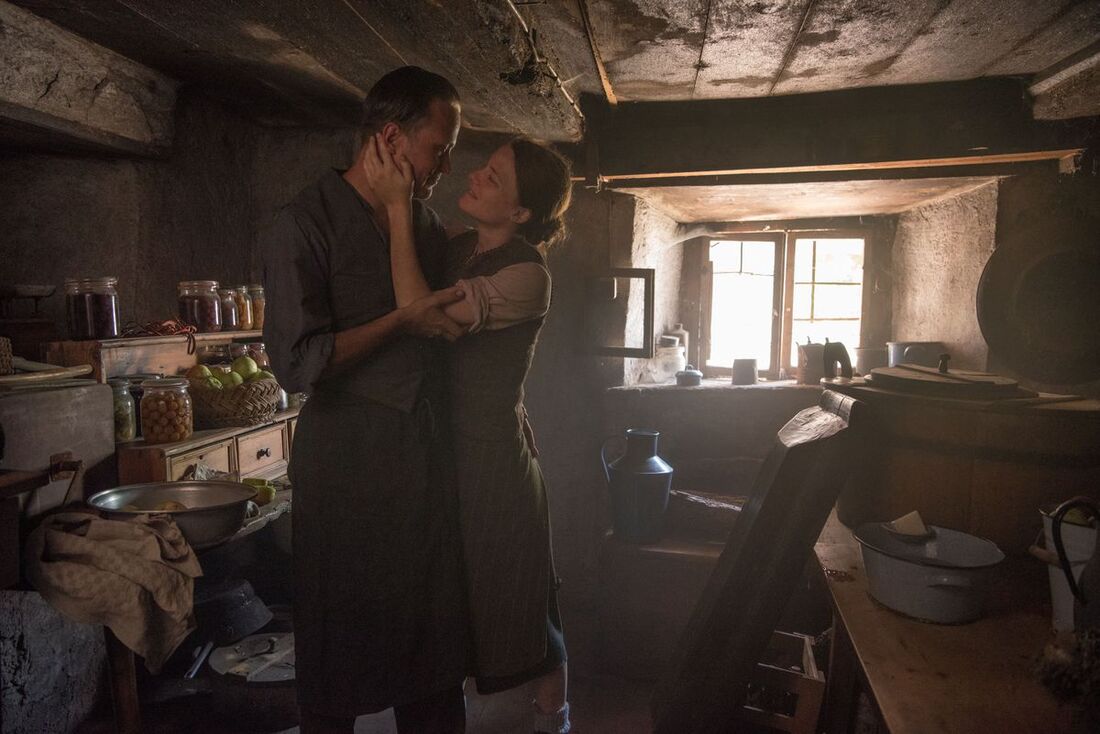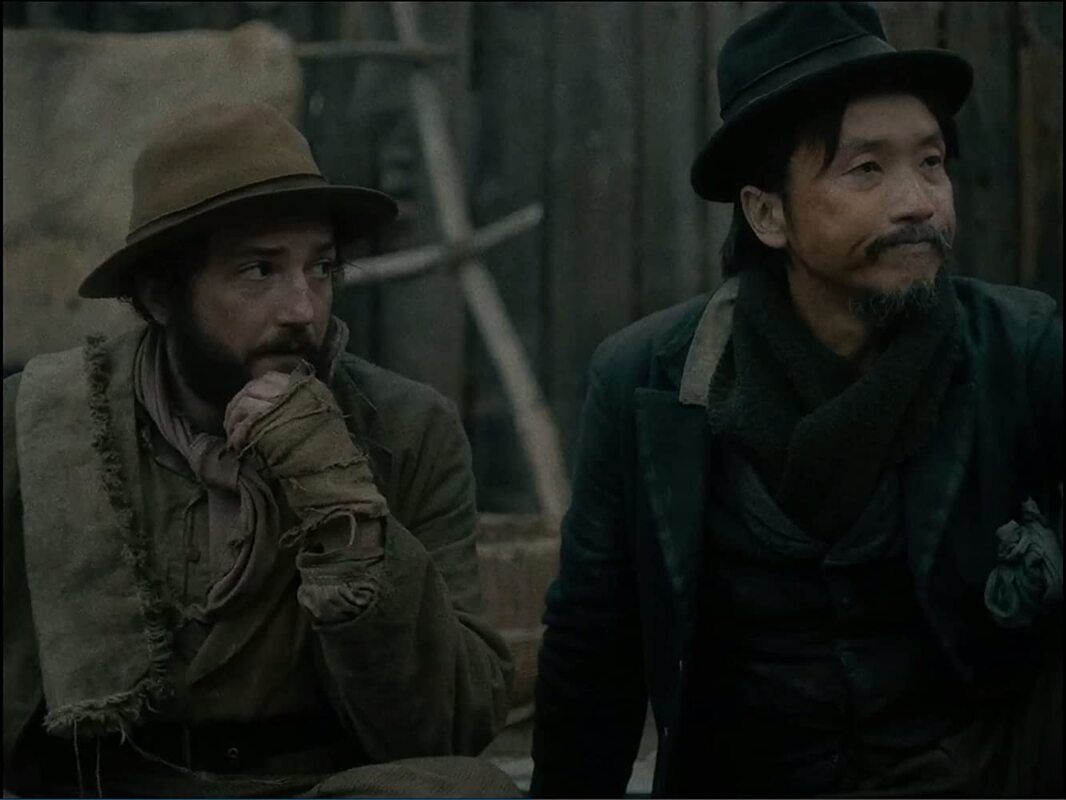|
The second of Joshua Oppenheimer’s landmark documentary duo on the 1965 Indonesia leftist purge, The Look of Silence flips the perspective from those who did the killing to the relatives of those who were killed. In Oppenheimer’s earlier Act of Killing, he gets some of the perpetrators, responsible for the deaths of somewhere between 500,000 to a million Indonesians and presently celebrated as national heroes, to recreate their deeds under the guise of a mythic film. Bragging to a foreigner about what they did in that very strange and chilling film is one thing. There’s a level of distance that Oppenheimer creates that allows the killers to be completely free in what they say. With Look of Silence, Oppenheimer brings along a man whose brother was killed and lets him do the talking. These two films, each inseparable from the other, are required viewing for any thinking citizen. Darkly compelling and deeply human, Look of Silence is the antithesis to the hellish upside-down world of Act of Killing, a world that dominates Indonesia but festers with barely-contained rot and resentment.
0 Comments
Of all the Catholic hymns I had to sit through as a child, one that still sticks out is the one with its refrain of ‘Were you there when they crucified my Lord?’ A Catholic audience was surely supposed to take that as a ban on complaining about any matter large or small, but a better understanding of its accusatory nature would point its finger at god. Even Jesus on the cross wondered why he had been forsaken. Terence Malick opens his greatest film, The Tree of Life, with a similar question towards Job, except it’s god taunting Job’s misfortune and his daring to question god’s purpose. Where were you, Job, when I shaped all things? Malick proceeds to interrogate the god-to-subject and subject-to-god relationship in a film whose timeline spans billions of years. The Tree of Life is the ultimate in the universal drilling down into the specific, a scope that few filmmakers would be able to get their arms around. Malick, a director who has always found time for digressions on natural beauty, gloriously makes it work.
After three off-the-mark movies whose low stakes made a mockery of his trademark style, Terence Malick returns to a time period he’s visited before that’s more suited to his love of nature and spirituality. Gone are the American banalities of Midwest subdivisions and tony LA parties, replaced with nothing less than the essence of political participation and morality. Malick’s films, laden as they are with searching voiceover and contemplation, don’t work if the setting of the voiceover doesn’t warrant that level of introspection. In A Hidden Life, Malick finds the ideal union, a protagonist whose enforced loneliness and reliance on his religion requires the viewer to go into his head. The result is a film that has a crystalline, essential perfection, though its elegance and simplicity doesn’t justify a three-hour runtime.
Kelly Reichardt’s austere vision of the Pacific Northwest, crafted over half a dozen films, gets a little bit warmer with First Cow. Having already filmed a trip-to-nowhere on the Oregon Trail with the excellent Meek’s Cutoff, Reichardt starts her latest with the journey already over, focusing on what comes next once the wagon’s been repaired and the river’s been forded. With her second period-set film, Reichardt has wrapped her arms around the American frontier, a place where, in the words of one of the leads, history hasn’t arrived yet. All the optimism and the naivete contained in that phrase, and the willful blindness to the people that have been there long before waves of traders and migrants swooped in, is the country in a nutshell, a place that sends out useful idiots to do the dirty work of settlement and clearance before capitalizing on their brutal labor and brushing them aside as surely as they just did the brushing. As clearly as Reichardt sees this, she also understands the intoxicating sense of possibility that drives the entire project of America, and despite opening her film on an unmarked grave discovered in the present, she manages to convince the viewer that she’s telling a different story than the one she initially suggests. There’s nothing more American than lulling a mark into a warm sense of security.
|
Side PiecesRandom projects from the MMC Universe. Categories
All
Archives
April 2023
|




 RSS Feed
RSS Feed